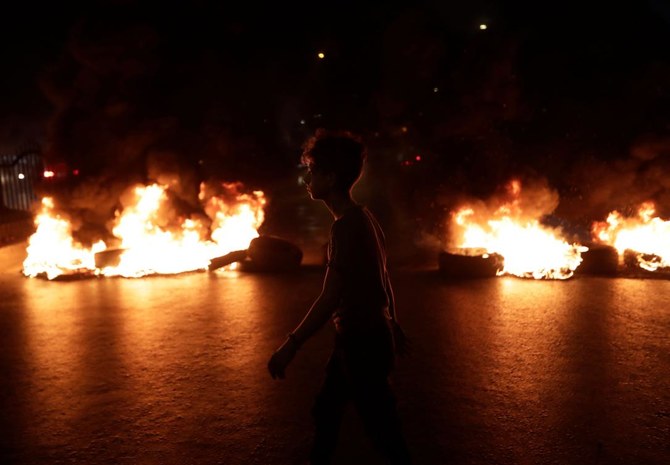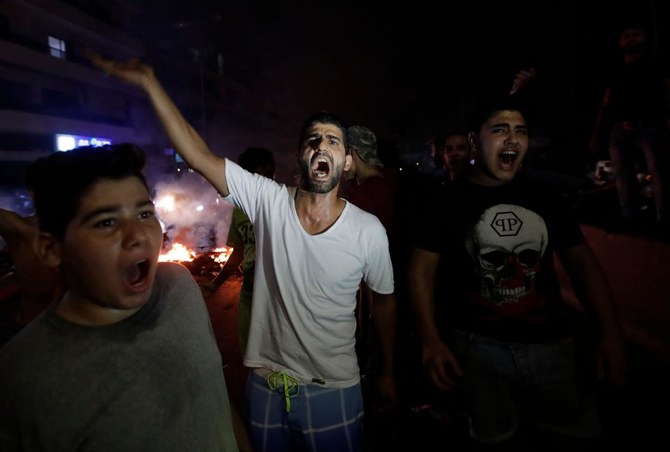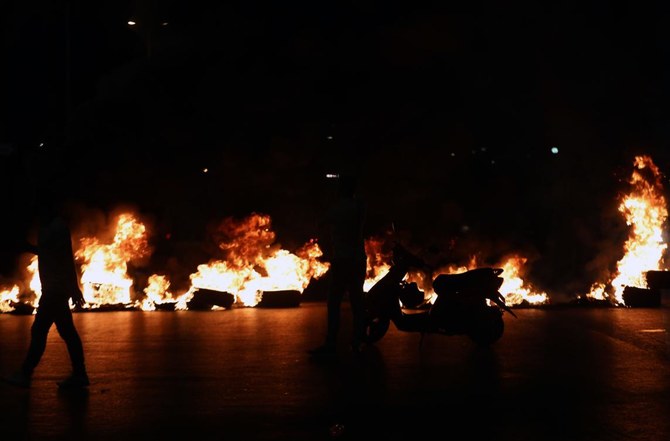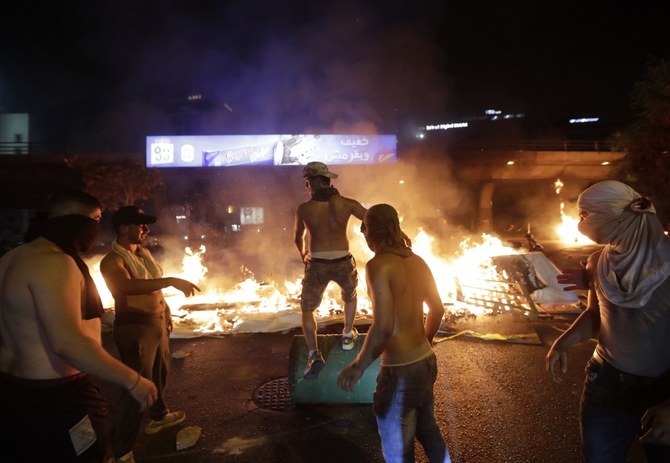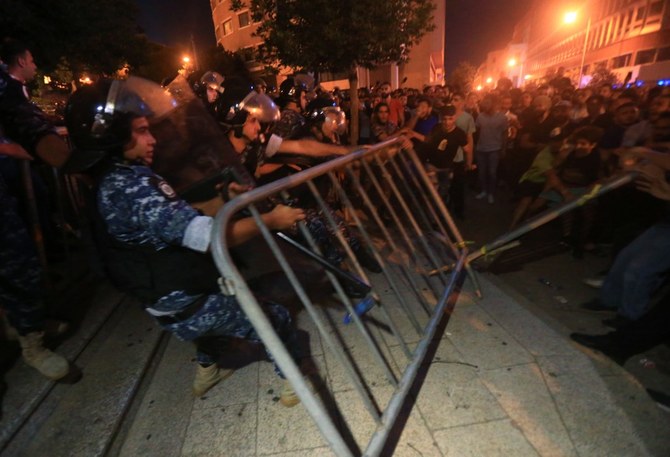BEIRUT: Demonstrations erupted last night in Lebanon over plans for the introduction of a tax on telephone calls made over the internet using the WhatsApp messenger. Thousands of people continued to protest past midnight, even after an announcement by Telecommunications Minister Mohammad Choucair that the plan had been abandoned at the request of Prime Minister Saad Hariri.
Some of the demonstrators said that ditching the WhatsApp tax plan was not enough because there are many other tax burdens imposed on people in the economically paralyzed country.
“This government must resign because no one in it wants to take responsibility for our circumstances,” a protester said. “We are dying every day but they are indifferent. No jobs, no social security and no health guarantees. We are from all sects protesting in the streets. They want us to pay but they do not provide us with anything in return.”
Protests began in a number of places after civil activists with no obvious partisan political affiliations issued a call for action on social-media sites. By 8 p.m. a few dozen people were on the streets in Beirut. As they moved around, they were were joined by others and the numbers grew to hundreds and then thousands, spreading into the city’s southern suburbs. The main road to the airport was also blocked with burning tires.
Protesters packed roads from Riad Al-Solh Square in central Beirut all the way to Martyrs Square, chanting “Revolution” and “The people want to take down the regime.”
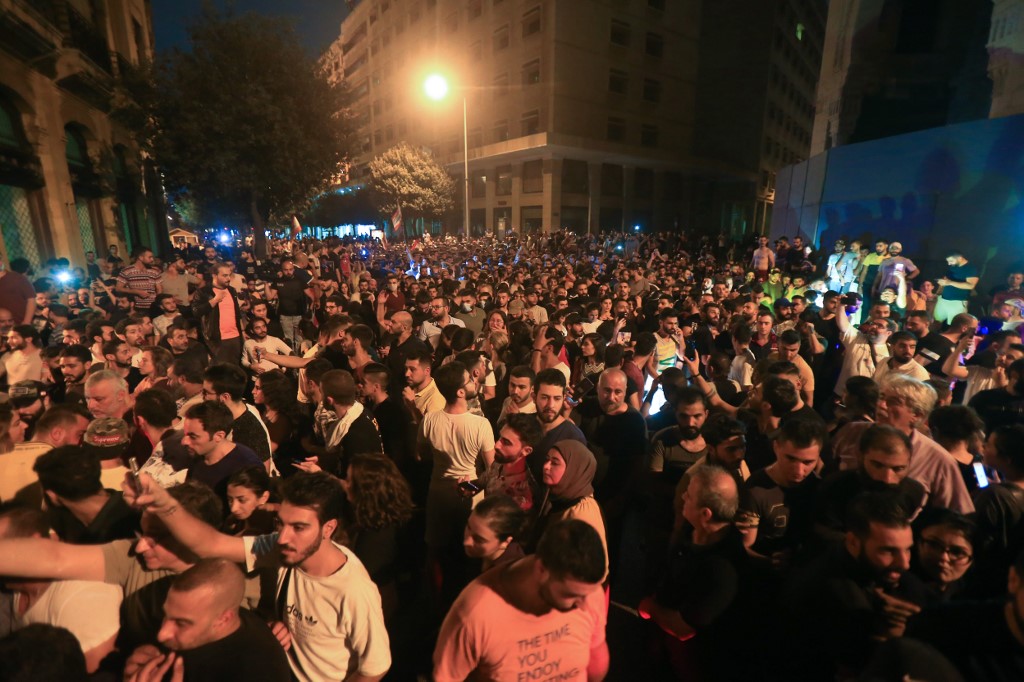
Demonstrators gather during a protest against a government decision to tax calls made on messaging applications on October 17, 2019. (AFP)
One person, the head of a family, said: “We are poor people. Why are they preying upon us? We had free WhatsApp calls — why do they want us to pay the internet bill twice?”
Protesters also gathered in Tripoli, where posters of Hariri were torn down in city is normally loyal to him. The demonstrations spread to the Bekaa region, where roads leading to the Masnaa border crossing with Syria were blocked. In Baalbek-Hermel, most of the roads leading to Hezbollah were blocked. The protesters then moved to the road leading to the south, blocking it as well. Armenian protesters and activists from Christian-majority areas also took to the streets and blocked roads in Zgharta, Akkar and Byblos.
A large number of the demonstrators seemed to be actively protesting for the first time, and there was a mix of men and women, younger and older people. The majority appeared to from the middle and lower classes. In footage recorded by TV news crews, many said that they have had enough of the way they are being treated by the authorities and will not take anymore.
In one of the calls on social media for more people to join the demonstrations, a protester wrote: “Leave your hookahs and join us. What are you waiting for? They are taking every bite from our mouths.”
The anger was sparked by a cabinet meeting on Wednesday to discuss the 2020 budget, during which Choucair raised the possibility of imposing a tax of 20 cents per day on internet calls made using the WhatsApp messenger application.
“The cabinet approved a study of the idea but did not turn it into a decision,” Choucair said. “The implementation requires technical equipment that we do not have. I have said that any step toward imposing this tax must be offset against new offers for users.”
However, the proposal was greeted with anger and outrage, especially among young people and those on low incomes. Many were also concerned that it was not only designed to boost tax revenue, but also a way to monitor communications and restrict freedom of speech and protests.
Many people made sarcastic comments about the issue, which was raised by pro-Hezbollah newspaper Al-Akhbar on Thursday morning. Hezbollah cabinet minister Mahmoud Qamati said that the party’s ministers would not agree to the tax. “We will seek to thwart any decision on the matter,” he added.
However, Choucair pointed out that during the Cabinet meeting no ministers, Hezbollah or otherwise, had opposed the idea. He accused “hidden hands of being behind the anger in the street,” adding: “I do not want to accuse anyone but this is not an innocent matter.”


